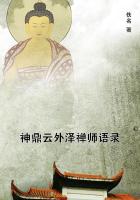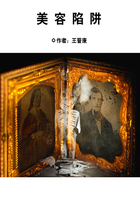Professor Wenckebach came to Wellesley in 1883, and we have the story of her coming, in her own letters, given us in translation by Professor Muller. She was attending the Sauveur Summer School of Languages at Amherst, and had been asked to take some classes there, in elementary German, where her methods immediately attracted attention; and presently we find her writing:
"Hurrah! I have made a superb catch--not a widower nor a bachelor, but something infinitely superior! I must not anticipate, though, but proceed according to program....
"The other day, when I was in my room digging away at my Greek lessons, the landlady brings in three visiting cards, remarking that the three ladies who wish to see me are in the reception room.
I look at the cards and read: Miss Alice Freeman, President (in German, Rector Magnificus) of Wellesley College; Mrs. Durant, Treasurer; and Miss Denio, Professor of German Literature at Wellesley College (Wellesley, you must know, is the largest and most magnificent of all the women's colleges in the United States).
I immediately comprehended that these were three lions (grosse Tiere), and I began to have curious presentiments. Fortunately, l was in correct dress, so that I could rush down into our elegant reception room. Here I made a solemn bow, the three ladies returning the compliment. The president, a lady who must be a good deal younger than myself, a real Ph.D. (of Philosophy and History), told me that she had heard of me and therefore wished to see me in regard to a vacancy at Wellesley College, which, according to the statutes, must not be filled by a man so long as a woman could be procured. The woman she was looking for must be able, she said, to give lectures on German Literature in German, and to expound the works of German writers thoroughly; she would engage me for this position, she added, if she found that I was the right person for it.
"I was dumfounded at the mere suggestion of this gift of Heaven coming to me, for l had heard so many beautiful things about Wellesley that the idea of possibly getting a position there totally dazed me. Summoning up courage, however, I controlled my wild joy, and pulling myself together with determination, I gave the ladies the desired account of my studies, my journalistic work, etc., whereupon the president informed me that she would attend my class the next day."
The ordeal was successfully passed, and the position of "head teacher in the German Department at Wellesley" was immediately offered her. "Now you think, I suppose, that I fell round the necks of those angels of joy! l didn't though!" she blithely writes. But she agreed to visit Wellesley, and her description of this visit gives us old College Hall in a new light.
"The place in itself is so beautiful that we could hardly realize its being merely a school. The Royal Palace in Berlin is small compared to the main building, which in length and stateliness of appearance surpasses even the great Winter Palace in St. Petersburg.
The entrance hall is decorated with magnificent palms, with valuable paintings, and choice statuary. The walls in all the corridors are covered with fine engravings; there are carpets everywhere and elegant pieces of furniture; there is gas, steam heat, and a big elevator; everything, down to the bathrooms, is princely."
Professor Muller adds, "Of course, she was 'kind enough' to accept the position offered, although it was not especially lucrative.
'But what is a high salary,' she exclaims, 'in comparison to the ease and enthusiasm with which I can here plow a new field of work!
That, and the honor attached to the position, are worth more to me than thousands of dollars. I am to be a regular grosses Tier now myself,--what fun, after having been a beast of burden so long!'"
From the first, Wellesley recognized her quality, and wisely gave it *******. In addition to her work in German, we owe to her the beginnings of the Department of Education, through her lectures on Pedagogy.
Speaking of her power, Professor Muller says: "Truly, as a teacher, especially a teacher of youth, Fraulein Wenckebach was unexcelled.
There was that relieving and inspiring, that broadening and yet deepening quality in her work, that ease and grace and joy, that mark the work of the elect only,--of those rare souls among us who are 'near the shaping hand of the Creator.'" And Fraulein Wenckebach herself said of her profession: "Every teacher, every educator, should above all be a guide. Not one of those who, like signposts, stretch their wooden arms with pedantic insistence in a given direction, but one, rather, who, after the manner of the heavenly bodies, diffusing warmth and light and cheer, draws the young soul irresistibly to leave its dark jungles of prejudice and ignorance for the promised land of wisdom and *******." And her students testify enthusiastically to her unusual success. One of them writes:














